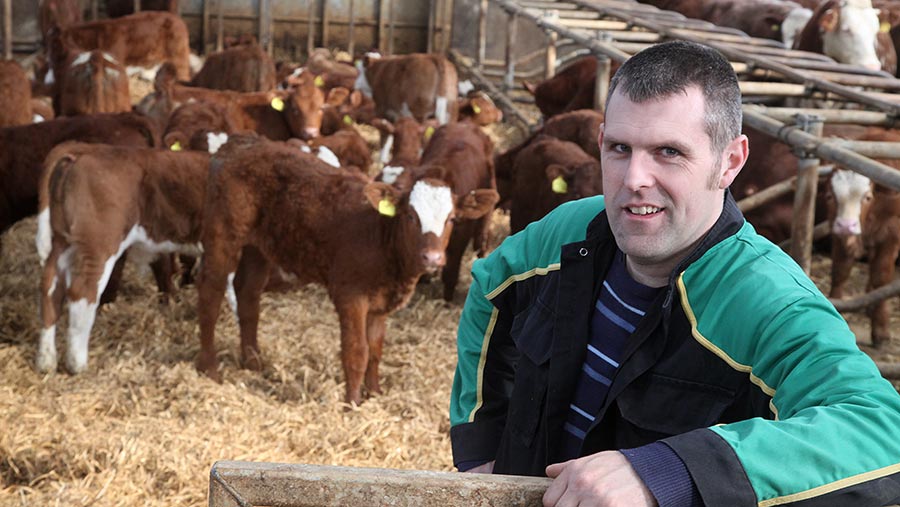Farmer Focus: Growing barley doesn’t always stack up here
 © Ken Amer
© Ken Amer When things aren’t going to plan with growing barley, I get the calculator out to see if it is really worthwhile.
Then, once the harvest is finished, I put the calculator away and hope that next season will be the year we have bumper crops.
I imagine the combine cruising up and down, with lovely, golden straw boiling out in nice, straight lines, ready to be baled the next day in the sunshine.
Meanwhile, back in the real world, when you grow barley in our part of the world – and certainly on a farm like mine – it is only sensible to be prepared for certain challenges.
See also: Advice on feeding suckler cows at different stages of production
Expect challenges
Grub (leatherjacket), geese, disease, poor-quality straw, windy weather that shakes the barley before it is cut and blows the straw after it is cut and combines tracking fields are all to be expected some years.
Between the 2018 and 2019 barley crop we were able to enjoy all these delights, so the calculator came out once again.
I only grow 7.2ha of barley. It’s mainly for the straw we need for bedding bulls, calving cows and young calves.
It uses 5.5% of our land. If I sold this year’s barley and straw, it would amount to 5% of our gross income, but that 7.2ha accounts for 9% of our variable costs.
So, unless the numbers change, I’m going to give growing barley a miss for at least one year and have a few more cows and sheep.
Pleasing calf trade
The first batch of calves are sold and I was pleasantly surprised by the trade. I used QuietWean nose tags this year for the first time, with good results.
The calves lost 10-15kg on the three days the tags were in, but I took them out on a Saturday. They were shipped to Aberdeen on the Tuesday and sold on the Friday, and they were the same weight in Thainstone as they had been on the Saturday when they were separated from the cows.
The combination of the tags and the first-class facilities in which our cattle travel to the mainland mean they lost very little weight.
Steven Sandison farms Simmental and Salers cattle on Orkney, read his bio
